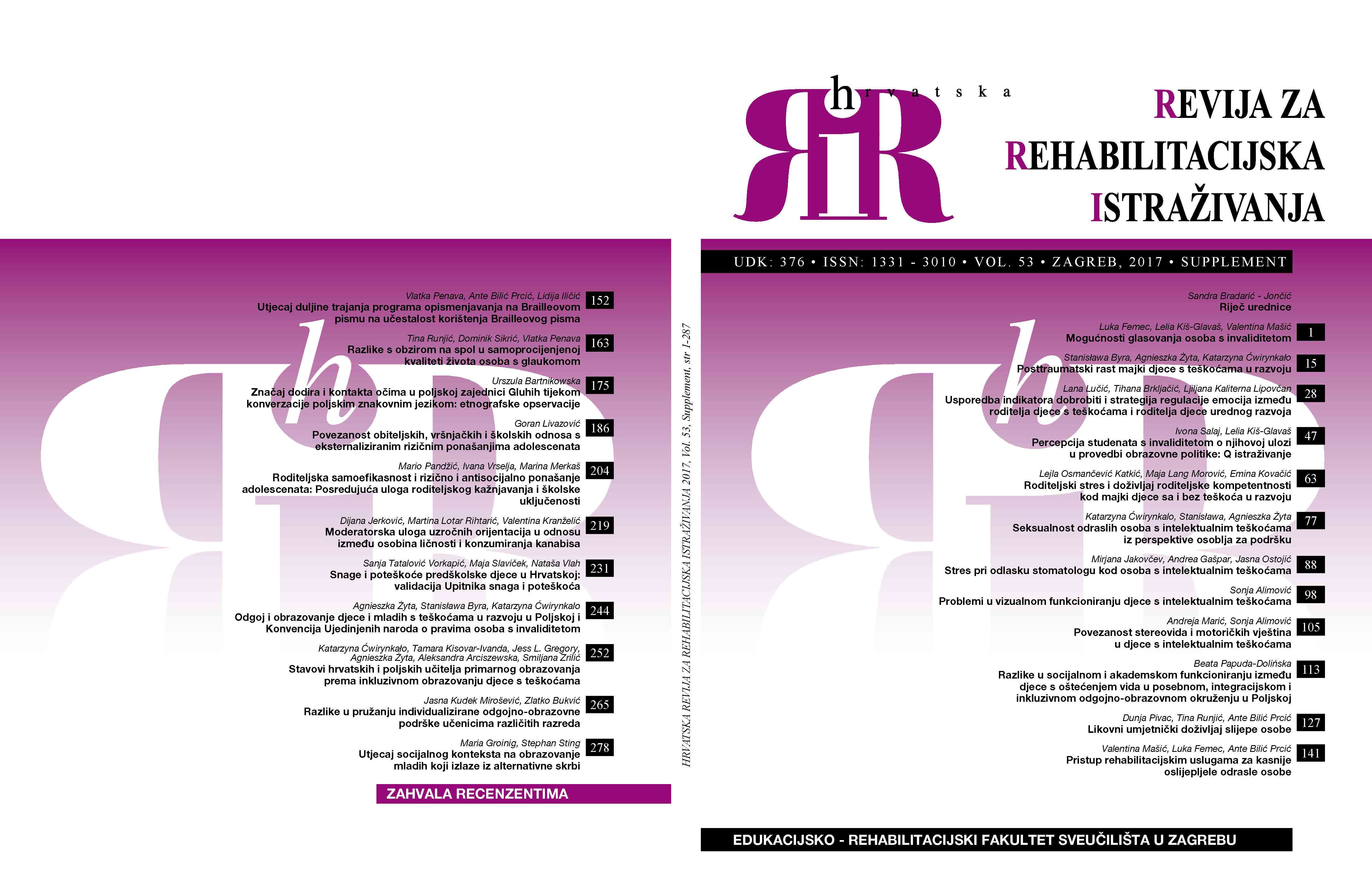Razlike s obzirom na spol u samoprocijenjenoj kvaliteti života osoba s glaukomom
Gender differences in self-perceived quality of life (QoL) among people with glaucoma
Author(s): Tina Runjić, Dominik Sikirić, Vlatka PenavaSubject(s): Social Sciences, Gender Studies, Social differentiation
Published by: Sveučilište u Zagrebu, Edukacijsko-rehabilitacijski fakultet
Keywords: quality of life; glaucoma; gender differences;
Summary/Abstract: The number of aging people with significant visual impairment due to glaucoma is increasing. Visual impairments resulting from glaucoma have a negative impact on the quality of life (QoL). The adverse impacts of impaired vision manifests in the economic, social, and psychological aspects of life as well as in physical activity. In addition to being affected by visual impairment, self-perceived QoL may also be affected by sociodemographic factors such as gender, age, living conditions etc. Better understanding of the factors that affect the QoL of people with glaucoma is necessary for comprehensive and targeted action in affected areas of QoL. The aim of this paper was to determine differences in self-perceived QoL between males and females with visual impairment due to glaucoma. The study included 150 people with visual impairment due to glaucoma (N = 150), 92 females and 58 males. Visual acuity in the better eye of subjects was 50% or less (visual acuity ≤0.5) with an impaired visual field greater than 12 dB in mean defects, as measured with the Octopus Visual Field Analyser. The study used two questionnaires: The Impact of Vision Impairment Questionnaire (IVI) for measuring the self-perceived QoL and a self constructed General Information Questionnaire for general sociodemographic data. A discriminant analysis was performed on the collected data, using the Programme for Robust Discriminant Analysis (ROBDIS). Results of this research confirm the difference in self perceived QoL between men and women in three measured areas: Reading and information accessibility, Mobility and Independence, and Emotional well-being. It has been established that in all three measured areas, men assess their QoL better than women and perceive less impact of visual impairment on QoL.
Journal: Hrvatska revija za rehabilitacijska istraživanja
- Issue Year: 53/2017
- Issue No: Supp.
- Page Range: 163-174
- Page Count: 11
- Language: English

